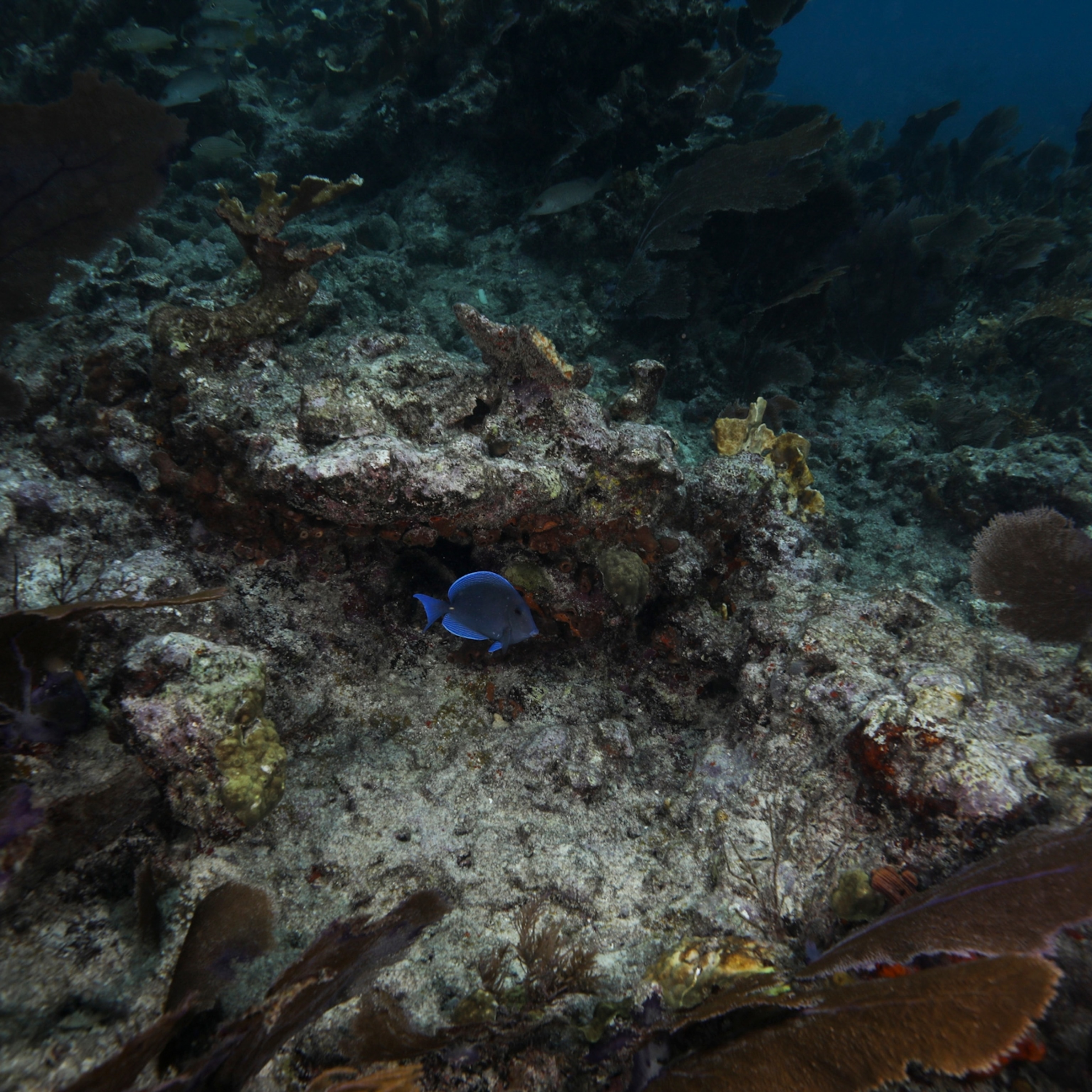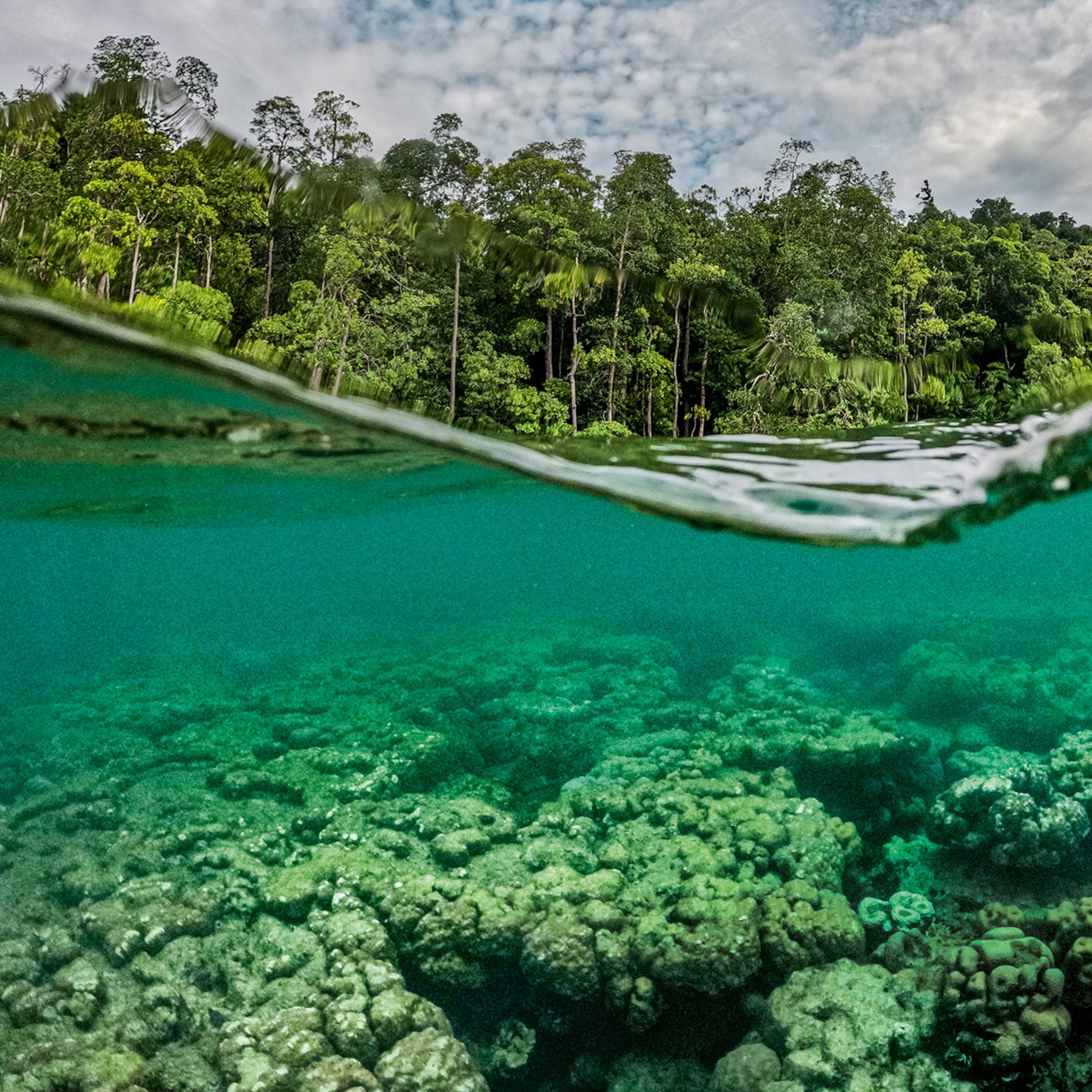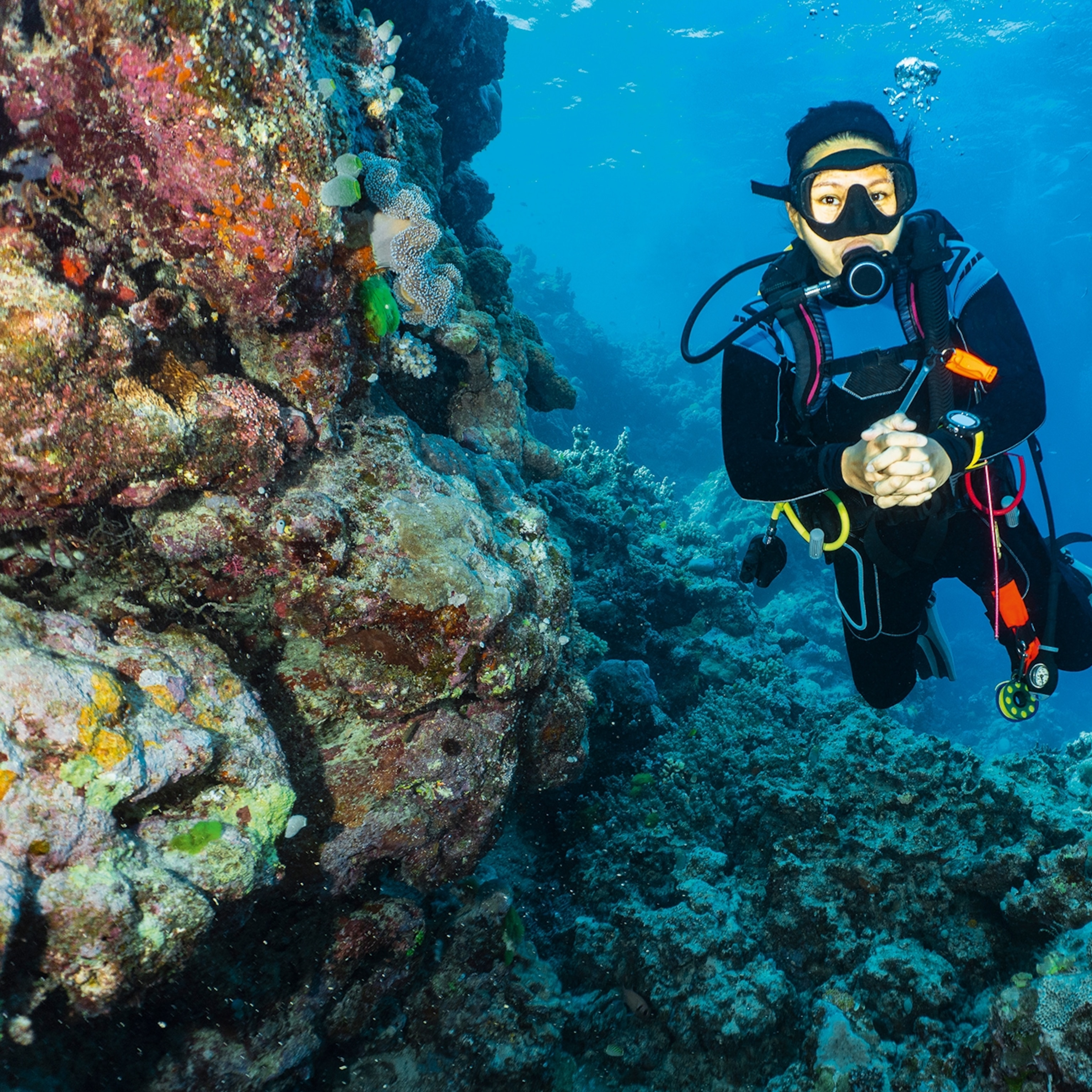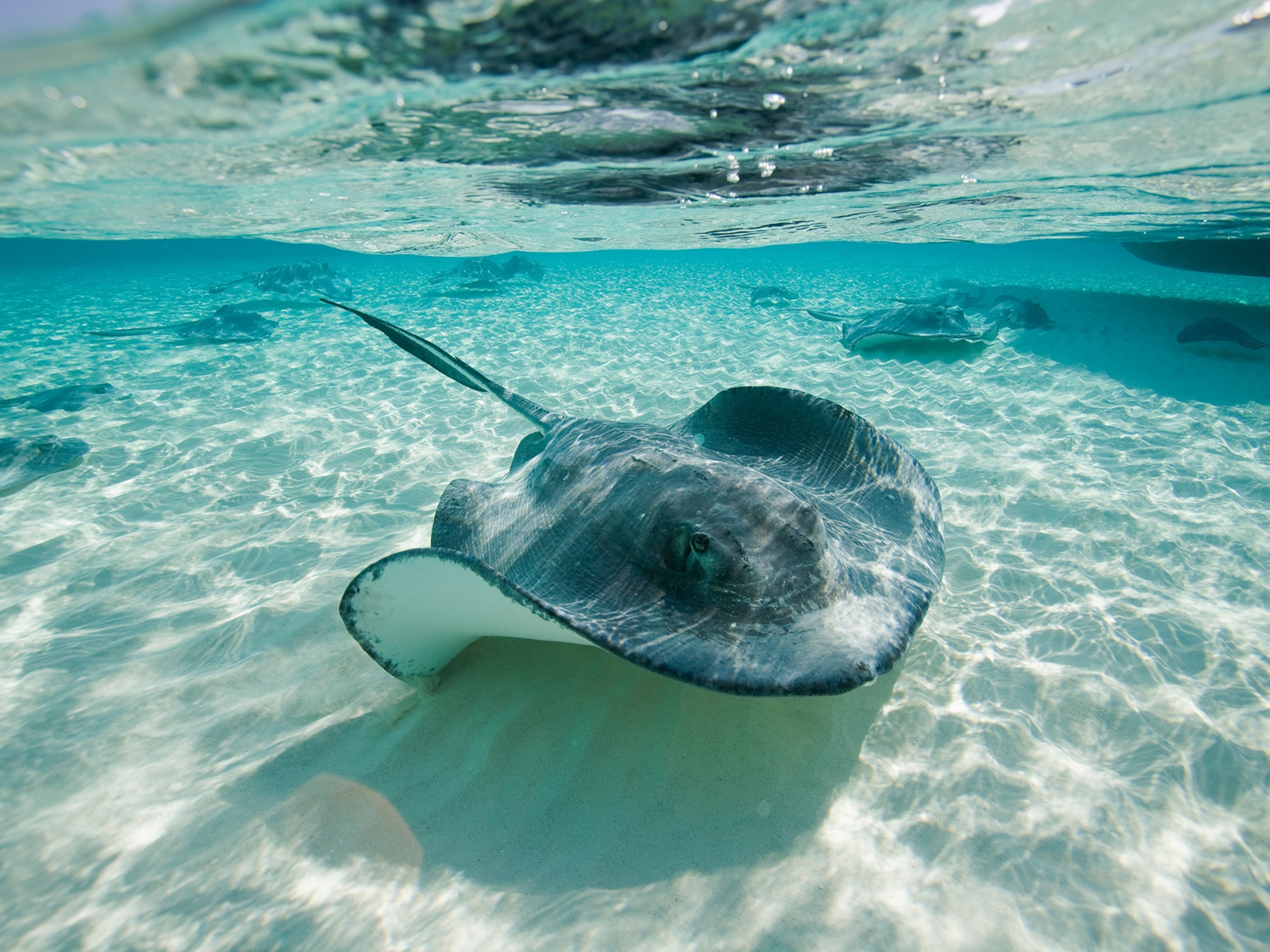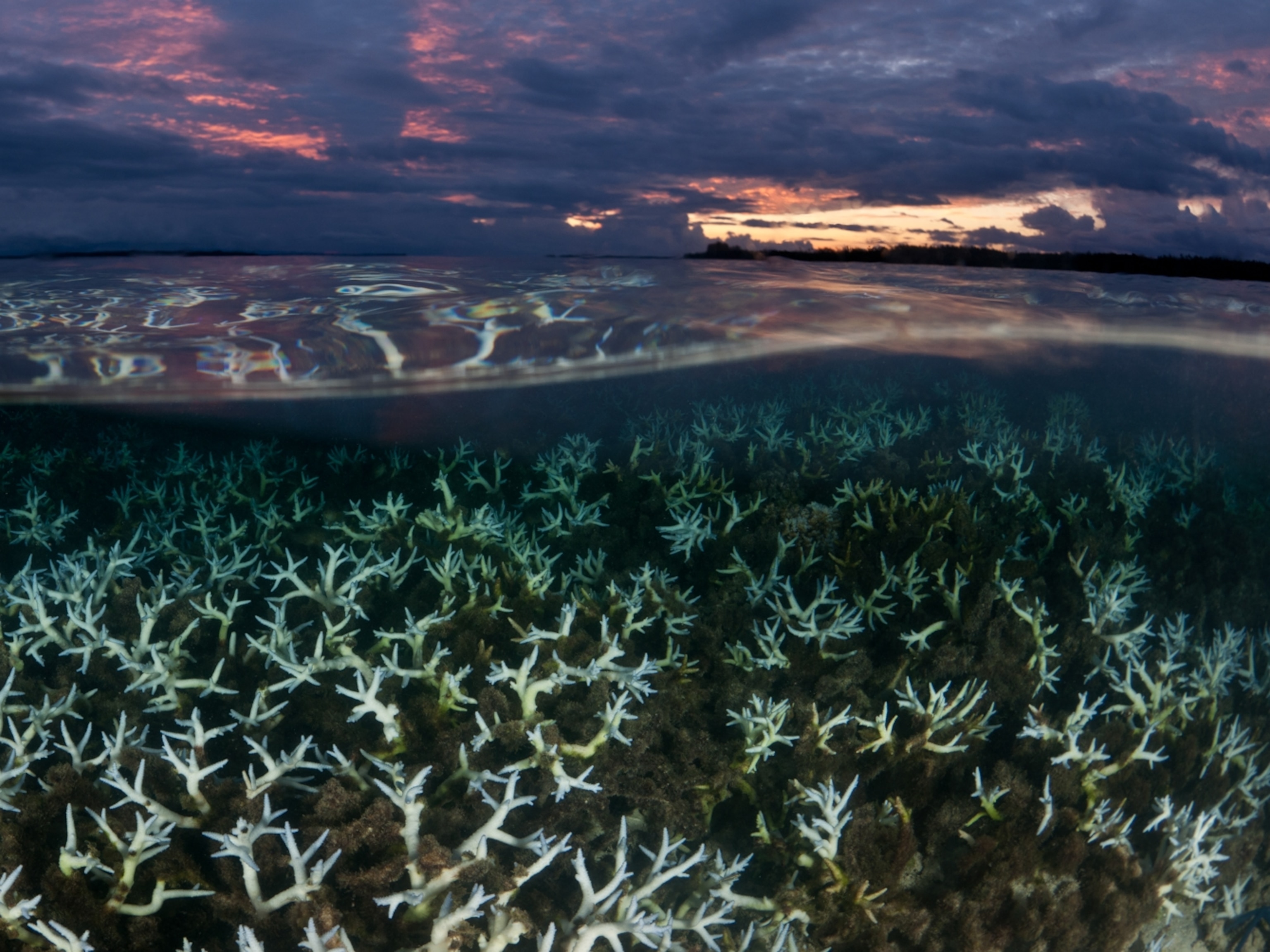
Coral reefs depend on lots of fish the size of jellybeans
Most fish that populate a reef are tiny snacks smaller than two inches. They live fast and get eaten young—and keep the ecosystem humming.
There’s an old paradox about coral reefs: They occupy tiny parts of the ocean, and nutrient-poor parts of it at that, and yet they’re home to a third of the world’s fish species. Millions of people depend on them for food. What accounts for their dazzling productivity?
Ever since Charles Darwin first recognized the paradox, scientists have struggled to resolve it. One theory suggests that the sloping topography of reefs captures and concentrates nutrients and microscopic plankton from the surrounding waters. Another focuses on the role of sponges and other invertebrates in recycling dead organic matter into something that can be eaten.
Now, marine scientists from Canada, France, Australia, and the U.S. believe they have found another part of the solution to Darwin’s paradox. In a paper published this week in Science, they argue that a plethora of tiny reef fishes—the ocean’s smallest vertebrates—are fuelling the nutritional engine of reef ecosystems, providing food for the larger and more eye-catching creatures.
Those puny fishes—gobies, blennies, cardinalfishes, and others—are mostly less than two inches long. Some are so tiny you would need 40 of them to equal the weight of a quarter. Yet they may account for almost 60 percent of the fish biomass and half the fish species on a reef—“the hidden half,” says Simon Brandl, a coral reef ecologist at Simon Fraser University, in Vancouver, who led the new study.
The secret of the tiny fishes’ success—and of their importance on the reef—is a way of life that is reminiscent of insects: They breed prolifically, grow fast, and lead very short lives.
“They have made a switch that is unlike any vertebrate organism we know,” Brandl says. “They have gone into mayfly territory, cicada territory, with a long larval stage and only a few weeks as adults. They reproduce, and then they’re gone, gobbled up by a predator.”
Crimson and key-lime camouflage
The formal name for these neglected animals is “cryptobenthic reef fishes”: “Crypto” because they blend into their environment, either visually or by their behavior, and “benthic” because they live near, or even within, the seabed.
Blending in on a coral reef often requires gaudy coloring. Cryptobenthics may be crimson with turquoise spots, scarlet with yellow stripes, key-lime green, pewter dipped in orange, mango dipped in purple. They have spots, speckles, racing stripes, vertical bars, and hallucinogenic swashes. There are endless variations.
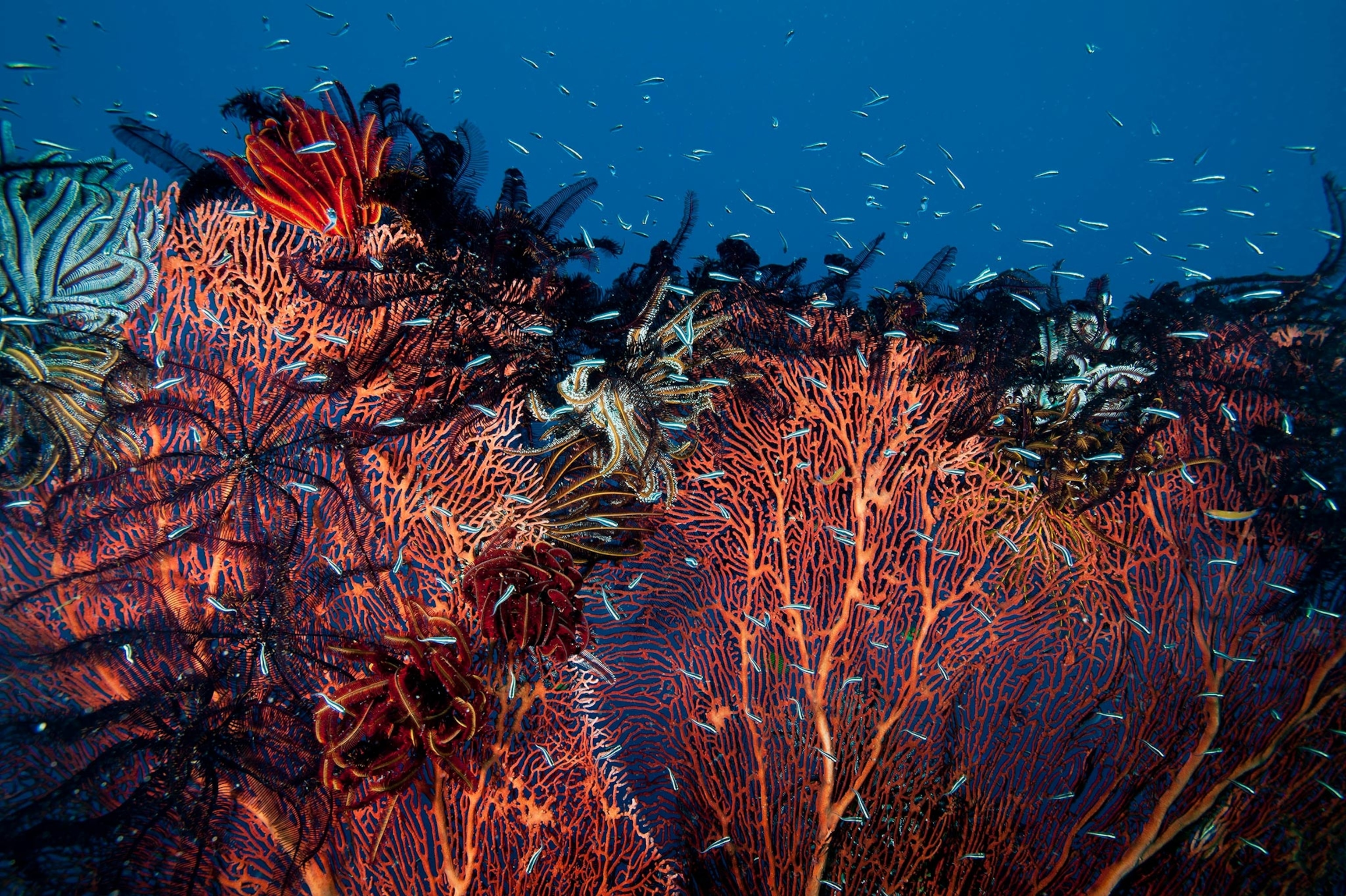
In keeping with their diminutive size, many of these fish occupy territories only a few hand’s breadths in size, and they have highly specific habitat preferences. Some live only on a single species of coral. Others live only on sand, or on rubble, or in empty worm tubes.
Scientists have so far discovered more than 2,800 species of these fishes, and are finding new ones at the rate of about 30 a year. Sometimes they have to use chemical anesthetics to flush the tiny fish from their lairs.
With manned submersibles, biologists have even found new cryptobenthics on reefs many hundreds of feet deep—a process Brandl compares to “searching for a needle in a haystack in a dark barn using a forklift.”
Short lives, excellent parenting
The great significance of these fish, says Brandl, is their way of life. Their fast growth, rapid turnover, and extreme mortality serve as a pump that constantly keeps biological energy flowing through the reef food web. The cryptobenthics eat microscopic stuff—filamentous algae, coral mucus, tiny crustaceans—and convert it to food for the hundreds of large fish species that define coral reefs in the minds of those who treasure them.
The turnover of the tiny fish is immense. The maximum age of the dwarf goby in the wild is 59 days—the shortest lifespan of any known vertebrate. Another goby spends longer as a larval stage than as an adult. No other fish is known to have that life pattern.
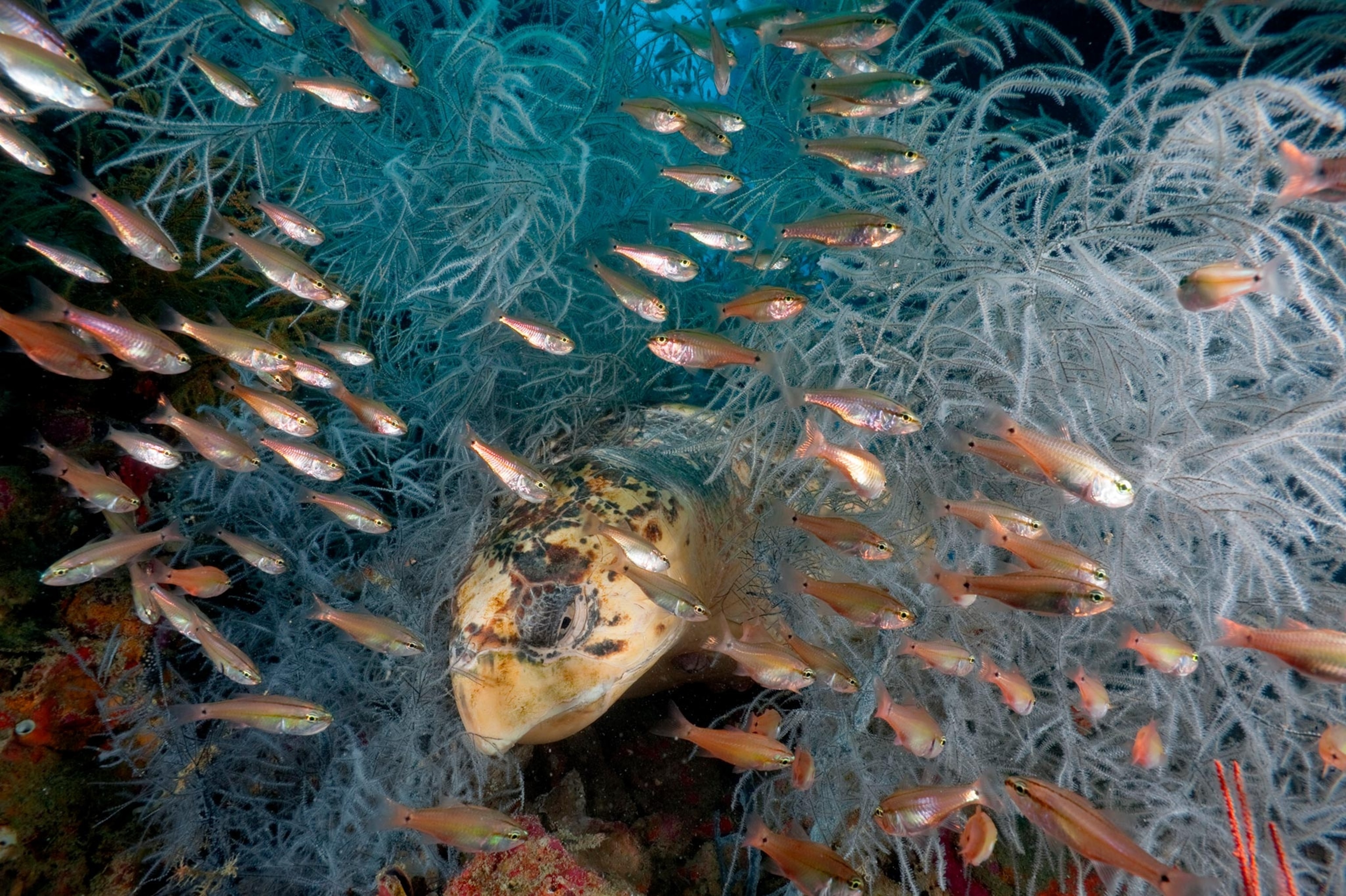
Up to 70 percent of cryptobenthics die each week, according to Brandl’s team, mostly in the jaws of bigger animals. They are eaten by virtually any reef predator—fish, mantis shrimps, crabs, even some predatory mollusks. The diet of juvenile groupers has been found to consist of almost 90 percent cryptobenthic fish.
To keep up, the tiny fish breed very fast, and year-round; dwarf gobies, for instance, can produce more than seven generations in a year. More important, cryptobenthics are very successful at ensuring that their offspring survive.
Most larger fish broadcast their eggs into the sea and let currents spread them far and wide—a hedging strategy that ensures there will always be a few larvae floating around to replenish a population if a disaster strikes. “The disadvantage is you have to produce a huge number of offspring in order for some to survive the death trap of the open ocean,” Brandl says.
Cryptobenthic reef fish have the opposite strategy: They produce fewer offspring, keep them close to home, and invest heavily in them by providing an unusual degree of parental care.
Some brood their eggs in a pouch, some in their mouths, some tuck them behind their pectoral fins—that’s called armpit brooding. Two groups give birth to live young—a rarity among coral reef fishes.
Even species with more conventional egg-laying approaches, where the female attaches a sticky egg mass to a coral branch, a sponge, or a rock, provide those eggs with postnatal care. It’s mostly males who perform egg-minding duties, which include fanning the eggs to keep them well-oxygenated, and cleaning them to prevent the build up of detritus. Some species may even provide the eggs with antibiotic protection against infection.
Furtive childhood
All this parental investment would be of little avail if the larvae were swept away from the reef by strong currents. Whereas the larvae of large fish actively seek out those currents, to kick-start their ocean wanderings, cryptobenthic reef-fish larvae avoid them, settling on their home reef.
They manage to linger at the periphery of reefs, somehow keeping clear of both reef-based and open-ocean predators.
“How they do that, we don’t know,” says Brandl. “My guess is they drop down close to the bottom, perhaps a few hundred meters away from the reef, where currents may be weaker and where predators may be less likely to notice them. This is one of our next research questions: Where do the larvae actually go?”
